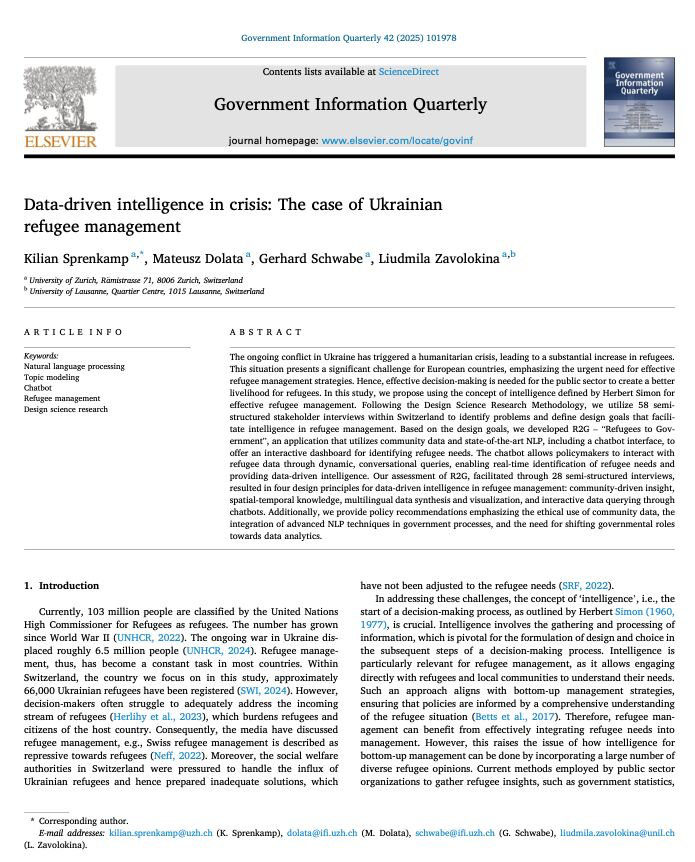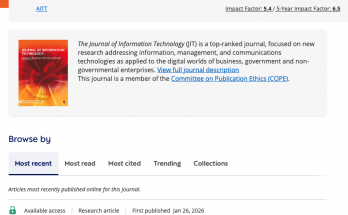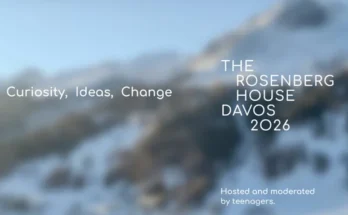In the face of humanitarian crises, how can we ensure data becomes meaningful action? For nearly three years, my team and I have been working on solutions to the urgent and complex challenges of humanitarian and crisis response caused by the war in Ukraine.
One part of our ongoing work is a new study, published in Government Information Quarterly, where we developed R2G (“Refugees to Government”), a tool designed to help refugee managers, policymakers, humanitarian professionals better understand and respond to refugee needs.

It’s available open access here: Link
In the article, we formulate four general design principles to guide the development of tools like R2G:
1️⃣ Community-driven insight:
Use online community data to gather timely, relevant information about refugee needs, ensuring decisions are grounded in real-world insights.
2️⃣ Spatial-temporal knowledge:
Provide analysis of where and when refugee needs arise to enable more precise and context-aware responses.
3️⃣ Multilingual data synthesis & Visualization:
Combine and visualize data from multiple languages to give professionals a clear and accurate understanding of refugee needs.
4️⃣ Chat with your data:
Offer an interactive chatbot that allows questions and answers, making complex data easy to access and use.
The paper offers much more: a reflection on the ethical use of such community data, policy implications, and a theoretical discussion on data-driven intelligence.
A big thanks to the co-authors Kilian Sprenkamp, Mateusz Dolata, Gerhard Schwabe and everyone who shared their ideas with us.



